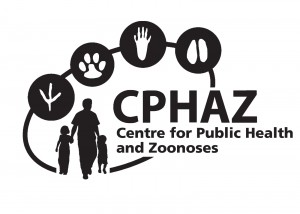The Zika virus outbreak and the re-emergence of raccoon rabies are among the topics that will be discussed during an international gathering at the University of Guelph.
The 71st International Conference on Diseases in Nature Communicable to Man will bring together experts from the medical, veterinary and public health communities.
They will address a variety of diseases that are acquired from natural sources, which include wild and domestic animals, contaminated water or food supplies, arthropod vectors and other sources.
The event will be held at the University of Guelph Aug. 7 to 9, and is co-hosted by the Canadian Wildlife Health Cooperative and U of G’s Centre for Public Health and Zoonoses.
Claire Jardine, a professor in Ontario Veterinary College’s Department of Pathobiology, says old diseases are re-emerging and new ones need to be addressed, making the conference a critical meeting point.
“Zoonoses and emerging diseases, they’re not going away,” she says. “Human encroachment into wild areas and climate change are some of the factors bringing these diseases into the forefront.”
The keynote speaker for the conference, Dr. Nicholas Ogden, will address causes, consequences and how we can respond to the emerging zoonoses in the R.R. Parker Memorial Lecture.
Other speakers include OVC Prof. Sherilee Harper, Department of Population Medicine, and Victoria Edge from the Public Health Agency of Canada. Both will discuss foodborne and waterborne diseases in the Canadian Arctic.
Robbin Lindsay, a research scientist from the Public Health Agency of Canada, will discuss the current Zika virus outbreak and Ken Gage of the Centers for Disease Control’s Bacterial Zoonoses Branch in Fort Collins, Colorado, will lecture on the plague.
“This is an opportunity to bring people together internationally to discuss issues associated with zoonotic diseases,” Jardine says.
“We are able to talk about old and new issues, and what we can do to effectively deal with them in the future.”